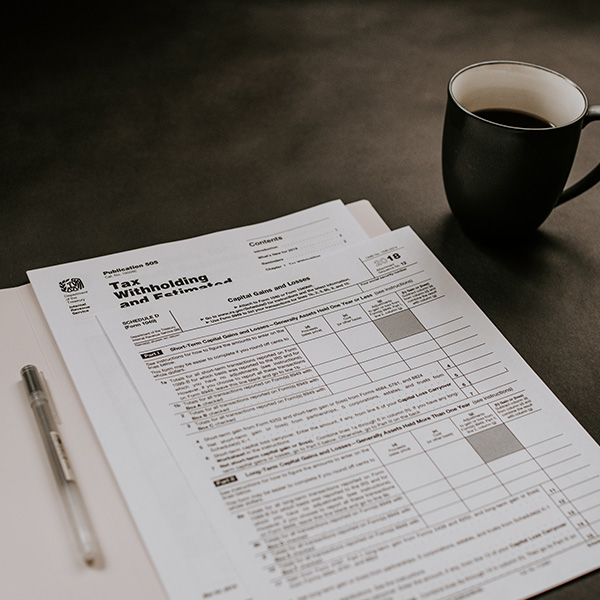Stock Market Dip? Portfolio Adjustments to Consider

Whew! The last few months in the stock market have not been for the faint of heart. The global economy, and by extension the equity markets, have been battered by the COVID-19 pandemic.
The S&P 500 Index, which tracks the performance of large cap U.S. stocks, fell 34% in less than five weeks from mid-February to late March, before rebounding 31% over the subsequent five weeks.
This article will address possible adjustments to consider with your investment portfolio during a stock market dip. Please keep in mind this is purely for educational purposes and is not meant to be taken as investment advice.

Don't Make the "Big Mistake"
Sometimes the best action you can take is no action. Our first suggestion is to avoid making the "Big Mistake." What is the "Big Mistake?" It is allowing your emotions or anxiety about your investments to cause you to deviate in the short-term from your long-term investment allocation. During times of heightened market volatility to the downside, the "Big Mistake" is selling out of your stocks or equity mutual funds (when their prices are lower than in the recent past) and holding the proceeds in cash. It is very difficult to accurately time the tops and bottoms of market movements, and remaining in cash would cause you to miss out on the eventual recovery in equity markets.

Continue Ongoing Contributions
If you are in a position to continue your ongoing contributions, then it is likely a good move to do so. Dollar cost averaging is the concept of making regular contributions and investment purchases, such as $1,000 per month into an equity mutual fund. As the stock market dips, your contributions buy more shares of these mutual funds now trading at lower prices. For example, if the mutual fund were trading at $50 per share and fell to $40 per share, then your $1,000 now buys 25 shares of the fund, up from 20 shares before the dip. Accumulating more shares at cheaper prices when they are "on sale" will further fuel your portfolio's return during the recovery.

Portfolio Rebalancing
As explained in our Summer 2016 and Fall 2019 articles on portfolio rebalancing, different asset classes (stocks, bonds, etc.) perform differently depending on the economic climate. A stock market dip could cause your percentage held in stocks to fall below its target allocation (let's say a target of 90% falls to 85% of your portfolio), while your percentage invested in bonds may rise as high credit quality bonds tend to hold their value during times of economic weakness (let's say bonds rise from 10% to 15%). Your portfolio is now overweighted to bonds and underweighted to stocks. Portfolio rebalancing would sell the extra 5% in bonds (reducing down to the target allocation of 10%) and using the sale proceeds to buy stocks (increasing your target back to 90% in stocks).

Tax Loss Harvesting
In taxable nonretirement brokerage accounts, we have the added consideration of tax effects when selling investments. Selling investments for a loss is not a desirable outcome, but can be a useful tactic in brokerage accounts, called tax loss harvesting. Let's say you bought a large cap U.S. stock mutual fund for $1,000. The stock market takes a dip and the value of your mutual fund falls to $800. You now have a $200 unrealized capital loss and there is no tax effect yet (it is "unrealized" because there has not yet been a taxable event). You would then sell out of this mutual fund, which realizes the capital loss, and reinvest the proceeds in a similar, but not identical investment to maintain your desired portfolio allocation. Your $200 realized capital loss is used to offset future capital gains you may incur and will lower your future tax burden. It will be carried forward indefinitely until fully used up.
The current pandemic has been, and is still, tragic from a human suffering standpoint. We thank all doctors and health care providers for their hard work in treating patients and helping to stem the flow of the virus. From an investing standpoint, these sharp, but temporary, dips can cause investors anxiety. We hope the four points above help you navigate future fluctuations in the market.



